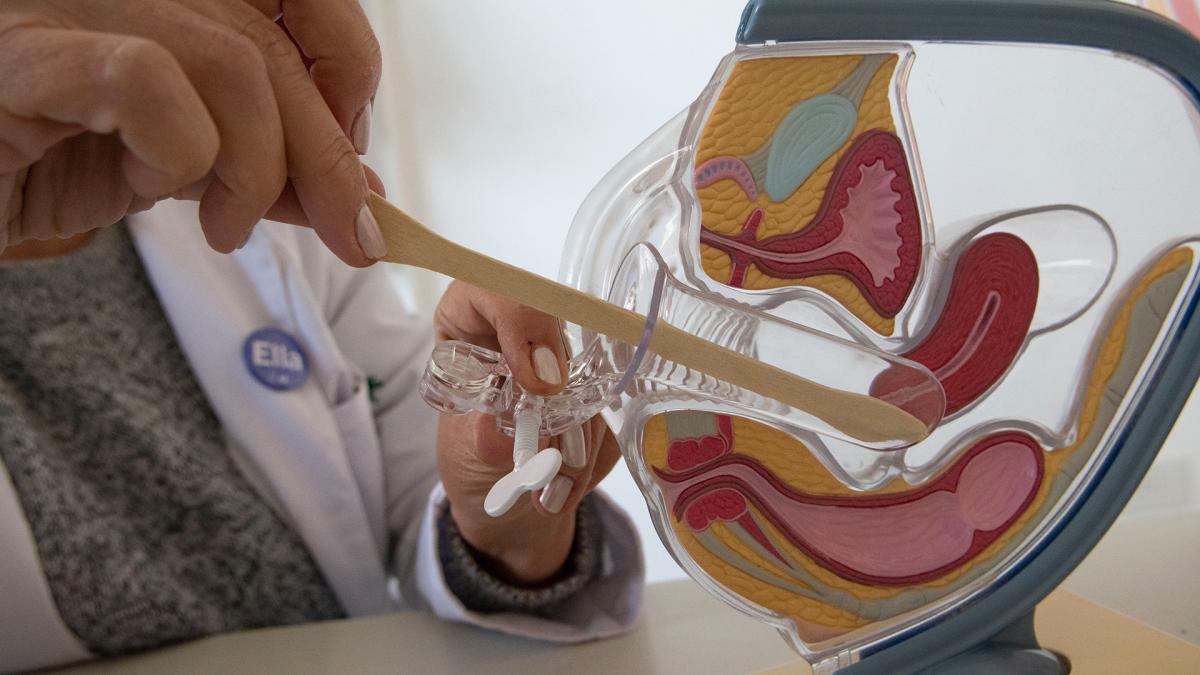 The obstetricians claim their work in the dissemination of contraceptive methods. /Photo: Camila Godoy.
The obstetricians claim their work in the dissemination of contraceptive methods. /Photo: Camila Godoy.
Obstetricians in Latin America often face barriers to prescribing, providing, or placing contraceptive methods, to offering reproductive and non-reproductive sexual health counseling services that could prevent, for example, female pregnancies, or to perform legal and voluntary interruptions of pregnancies, despite the fact that the World Health Organization (WHO) recommends that they be incorporated into the practice.
This is how they analyzed it 40 professionals gathered in Panama within the framework of the VII Regional Conference of the Latin American Consortium Against Unsafe Abortion (Clacai).
“This is the first time we have participated in this conference, and it is a recognition, we are not usually at these events, it is not easy for us,” Valeria Plugoboy, an Obstetrics graduate from Entre Ríos and a member of the Access to Health Network, told Télam. Safe Abortion (Redaas) that brings together health and legal professionals from Argentina.
She was one of the Argentines who, together with colleagues from Bolivia, Chile, Ecuador, Mexico and Peru, had a specific meeting within the Clacai meeting “to promote recognition strategies for a profession that, in recent years, has showed an enormous evolution, expanding its contributions in sexual and (non) reproductive health care”, highlights the sociologist Silvina Ramos, from Redaas.
In the region, the professionals are named in different ways: obstetricians, obstetricians, midwives, midwives. And there are also men.
 Photo: Florence Downes.
Photo: Florence Downes.
“Beyond the names, what they are looking for is for society, authorities and health systems to recognize their potential to contribute to expanding access and improving the quality of health care,” explains Ramos.
During the meeting organized by Redaas, the Center for the Promotion and Defense of Sexual and Reproductive Rights (Promsex) and the NGO Ipas Lac, the sociologist presented a survey on the status of this professional group in the countries participating in the meeting.
From this it follows that, for example, midwives “have a great incidence in the prescription and placement of long-term contraceptive methods. However, there are still barriers for the population to access their services for regulatory reasons (lack of regulations that enable them), lack of appropriate information about these methods, opposition from doctors and/or authorities, cultural norms and barriers administrative”, highlights the survey.
Ecuadorian obstetrician Gabriela Rivera tells Télam that the work of professionals in the area in her country “is to provide access to sexual health services for girls, adolescents, youth, adults and women in the climacteric, especially the most vulnerable groups. and reproductive with a focus on rights”.
Its task contributes “to the reduction of adolescent pregnancies, allows them to access contraceptive methods, reducing maternal morbidity and mortality, ensuring access to safe abortion services and adequate prenatal controls in accordance with regulations, as well as through timely referrals to second and third level of care; education and awareness about Sexually Transmitted Infections (STIs) or timely prevention, recruitment and referral of breast and cervical cancer, and referral of cases of gender violence so that women receive comprehensive care,” adds the professional.
The participants also had an informative talk on the WHO guidelines for safe abortion in 2022.in which it is emphasized that the interruption of pregnancy can be practiced safely by a wide range of health professionals, including obstetricians.
In addition, the WHO stresses that, in order to guarantee universal health coverage, it is essential to expand the teams with other professional profiles.
“Meeting empowers us, we build links and form a network. We work on four axes: incidence, management, teaching and service provision”contributes the entrerriana obstetrician.
The Argentines brought their experience promoting a national law that recognizes the autonomy of obstetrics as a specialty in the field of health and not as an auxiliary task.
Redaas, the United Nations Population Fund (Unfpa) and Ipas are promoting a local campaign to approve a national law that is following its course in the Chamber of Deputies.
In Argentina, recognized professional competencies and autonomy vary widely.
Corrientes is the province that modified its legislation this year, adapting it to the standards expected by professionals.
Some provinces have laws dating back to the 1960s or 1970s, where obstetrics was an auxiliary practice of medicine.
 Photo: Florence Downes.
Photo: Florence Downes.
La Pampa, Córdoba, Santa Fe, Entre Ríos, San Juan and the city of Buenos Aires are the jurisdictions with regulations dating from that time.
On the other hand, a second regulatory wave appeared from 2010 where the provinces began to regulate the exercise of obstetrics autonomously, and there are Neuquén, Buenos Aires, Tierra del Fuego, Río Negro, Catamarca, Jujuy, La Rioja, Salta, Misiones, Chaco, Chubut, Mendoza, Formosa and Santiago del Estero .
“It is a debt that is owed to obstetricians, we need a national legal framework to be able to work in all areas. A national law makes us equal to obstetricians and users, so that they have equal access to the right to health anywhere country,” explains Plugoboy.
The Latin American meeting in Panama was based on revaluing the profession with the recognition of the contributions of obstetric women to sexual and (non) reproductive health care and prioritizing the profession through regulatory frameworks and public policies that recognize their autonomy and your contributions.
Also in involving this professional group, traditionally dedicated to maternal and perinatal health in sexual and (non) reproductive health care and introducing new work models, such as shared tasks, to strengthen their role within the framework of work teamwork and comprehensive person-centered care, summarized the participants.
“Sharing allowed us to show that the reality in my country (Ecuador) is not a reality for everyone, evidencing the restrictions that still exist for the exercise either by laws or regulations of each country and health unions. It is essential to create alliances in the region so that the work of obstetricians is recognized, respected and valued. Policies and regulations must be created from governing bodies such as the WHO. It is essential that the contribution we make to society be visualized,” concludes the Ecuadorian Rivera.
Professionals represent less than 10% of health personnel, and an estimated 900,000 obstetricians are missing this Sunday to provide services that would save 4.3 million lives each year by 2035 on a global scale, according to the latest report on the World State of Midwifery, prepared by prepared by Unfpa, the International Confederation of Midwives, the WHO and the consulting firm Novametrics.


